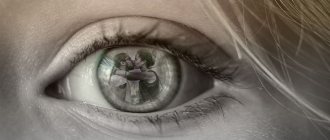We do this without noticing. We see a homeless person on the street, and a lot of judgments immediately come to mind: he is probably too lazy to get a job. And they are most likely drug addicts and alcoholics. These are crazy people and it is their own fault that they brought themselves to such a life... They tried poorly!
As a rule, we do not have even the slightest piece of information about the lives of these people, but the loud voice of condemnation sounds in our heads with might and main. Which, however, quite often leads us not to sound conclusions, but to erroneous conclusions, stereotypes, labeling and incorrect assumptions. Think about times when other people made unfair judgments about you. As a rule, we know very well that falling under the wrong judgment is painful and unpleasant. But then why do we continue to do the same to other people?
Because that's how we are made
Judgment is the sum of our thoughts, feelings and observations, and is also a purely evolutionary survival mechanism. Our brains are wired to make automatic judgments about the behavior of others and our environment so that we can navigate the world without spending too much time and energy understanding everything we see around us.
Our ability to evaluate the world (and each other) is why we have such big brains. Constantly assessing the social status, behavior, character of other people and the relationship of all this knowledge with oneself is a hard workout for the brain. And it is precisely because we are forced to constantly process social and communication norms that we have developed a cerebral cortex that is the largest, relative to body size, of any other mammal.
However, unlike our ancestors, who relied primarily on instincts and knowledge of the environment, we have developed, acquired intelligence - and learned to judge on the basis of things that, as it seems to us, are located much deeper, and therefore supposedly more accurate.
Do not take the words of others as a personal insult
If someone criticizes you without any justification, one of the best ways to deal with it is to remind yourself that their criticism is based on their own limited perspective.
They are not you, and they have not had the opportunity to live even a day in your shoes. This means that you should not care about their opinion.
Moreover, it often happens that when someone is jealous of you, this person is deliberately trying to trip you up and deprive you of your self-confidence. It makes him feel better.
Of course, learning not to be offended by this is not so easy, especially if you hear it from someone you care about. It may seem to you that you simply have to go on the offensive and give the offender a worthy answer that remaining silent is beneath your dignity.
But in fact, the best choice in this situation is to simply turn away from this situation as if it were something of little significance.
But don’t forget - in order to be able to do this, you need serious willpower. Strength that comes from having complete confidence that you are truly doing your best.
And if you don’t have this confidence, think about whether there is truth (at least partial) in the words of your offender. And if so, did he really want to offend you with his words? Sometimes kind criticism can help us grow and become better.
If you constantly judge people, you will not have time to love them - Mother Teresa.
Not really
There are two types of judgments we make about others:
- When we make situational assessments, we consider that a person's behavior is related to the existing external context. For example, a colleague was less sociable today than usual. He is probably tired or overworked.
- Personality assessment is more about a person's character. Assuming in the situation described above that the same colleague is an unfriendly hypocrite, we make a personality assessment.
Personality ratings are more stable and long-lasting because being unfriendly is a more permanent trait, as opposed to being overtired. As a rule, when forming a judgment, we tend to overestimate the role of the individual and underestimate the role of the situation, especially with people we do not know well. If your best friend didn't call you back right away, would you think he was an uncaring rude person? Or would you think about specific reasons why he couldn't do it because you know a lot about his life context?
Now imagine that you saw someone helping an elderly woman cross the road. Most likely, you will evaluate this person positively. However, the problem with personality assessment is that we reduce all people to a few characteristics, completely ignoring the fact that a person is a complex, three-dimensional being, with many sides that are not visible to the eye. After a minute of observation, we tend to think that we have figured out the person. But, in truth, we have no idea whether the man helping the old lady is a Good Samaritan or whether he is stealthily robbing her at that moment.
Try to switch to the positive
The first tip works, and works very well, but it is a gradual process and you will not achieve results in one or two days, no matter how much you might like it.
In the meantime, you may well practice changing your own perspective and point of view from negative to positive. Occupy your mind with your own good and the good of others - and there will simply be no room left for thoughts of bad things.
When someone once again judges you too harshly for a far-fetched reason, plunging you into the abyss of a bad mood and depression, try to think not about what went wrong, but about your own achievements. Remember - you have come a long way along the road of life, and have already achieved a lot.
You always give your best and you know it. And you understand perfectly well that the more you achieve, the more envious and pessimists will try to clip your wings.
That is why the habit of switching your attention from negativity to positivity, which allows you to draw strength from inner confidence in your own capabilities, will make it possible to easily cope with any external negativity.
The highest spiritual practice is observing oneself without a shadow of judgment - Sami Kripalu.
Why are we doing this?
The root of all judgments lies in our ego. When we see someone behaving in a way that we disagree with, we think, “I would never do that! I'm better than this person." A negative assessment of another, which seems to put him a step lower, makes us temporarily feel better. In this way, the ego constantly shifts our attention away from our own shortcomings and the work we need to do to improve ourselves.
Several years ago, scientists from Cardiff and Oxford Universities (UK) decided to study the connection between social comparison and the concept of generosity. Subjects participated in a simulation in which they had to decide whether or not to donate to another player based on their reputation and their own. The study's authors found that people are more willing to donate to those who have a reputation as good as their own. If another player was labeled as generous, participants were more likely to donate money to him than to the player labeled “greedy.” The way we evaluate (and judge) others is the way we evaluate (and judge) ourselves.
Leave this situation and these people in the past
Let's say you've tried all the tips, but you're still bombarded with destructive, self-esteem-eating criticism. You can't stand it anymore.
It may be time to end this situation for good and seriously limit your communication and interaction with this person.
A negative environment, especially when it is created around you by people you care about, has a strong impact on your happiness and personal growth. So think carefully about whether these people are really needed in your life.
To reach the top and reach your full potential, you must first surround yourself with loving, positive people who care about your overall well-being and who care if you succeed.
Love is the absence of judgment - Dalai Lama.
Others will always judge you based on your deeds and actions, and your best defense against this is to always remember who you really are, what you want to achieve, and where you are going.
Perhaps someday there will come a time when people will not judge others in order to humiliate them. When each of us can finally be ourselves, fly upward, without fear of having our wings clipped by a sarcastic remark.
So let's make at least a small contribution to making just such a future a reality - a future full of compassion and freedom for all!
How to judge less?
Judgments occupy a huge amount of our mental space and take up a lot of energy resources. They potentially damage our relationships with people and the world because we are more likely to give out negative assessments without sufficient reason to do so. Finally, the less we tend to judge others, the more clearly we see ourselves and therefore can work on ourselves more effectively.
Remember that each person's experience is unique
We can never fully understand other people's circumstances. We also cannot predict how we would react if we were to be in their shoes. When we judge, we look only at the part of a person that is visible to us. His actions, behavior or personality might make more sense to us if we knew what was going on beyond what was visible.
Listen and learn
Writer Andrew Solomon said, “It is almost impossible to hate a person whose history you know.” When we encounter circumstances that we don't understand or that make us uncomfortable, we have the opportunity to learn and grow. Learning about a person's history and trying to understand where they are coming from when they do things can broaden your perspective.
Look for the positives
When we judge someone, we focus on what we consider to be negative qualities. Instead of criticizing, try to see the positive traits: what does the person do right, what are his best qualities?
Ask yourself a question
When someone's behavior hits you too hard, it happens for a reason. Instead of starting to judge a person at such moments, look at yourself and ask yourself: “Why, exactly, does this bother me so much?” Often what we don't like about other people is a reflection of our own problems or insecurities.
Don't try to change people
It is not your job to change others. You can give advice, set an example and inspire, but each person must decide for himself how to improve his life and whether he wants to do it in principle. Give people the right to be who they are. The parts of someone's personality that you don't like may very well be aspects of their personality that the person is already working on.
Giving up the desire to judge someone does not mean that we have to agree with everything they do: we can disagree with other people's opinions and actions. If your boss loses his temper and starts throwing insults, it's normal to think that he is behaving inappropriately. The difference between an opinion and a judgment is that when you judge, you write off the other person's feelings and experiences.
Try to stop judging others - in any situation
The worst thing we can do to a person is to quickly judge him for his speech, for his appearance, for his actions, for anything - because in this way we miss the chance (sometimes irrevocably) to find out who he really is and what makes him unique .
We allow a limited perspective to cloud our perceptions, preventing us from seeing the good that is likely to be there. And if we do this with loved ones, we miss the opportunity to love them the way they deserve.
Judge not, lest ye be judged, for with the same judgment ye judge, so shall ye be judged; and with the same measure you use, it will be measured to you,” Luke 6:37.
To stop judging hastily means to stop judging yourself. Sometimes we can be our own worst critics. When we throw off the heavy burden of unnecessary judgments, we make room in our souls for love, including for ourselves.
Once we shift from a negative, critical perspective to a positive and loving one, we will be more motivated to make changes in the areas of our lives in which we want to improve.
A day spent judging others is a bad day, and a day spent judging yourself is just as bad - Buddha.
As you slowly clear yourself of other people's judgment, you will find that they are much less likely to judge you.
Your environment will become much more positive, and the emotions of the people around you will not push you down to the ground, but lift you up. This does not mean that they will not judge you at all, but they will try to do it gently so as not to offend you.




